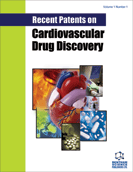Abstract
Sympathetic activation is a well-known phenomenon after acute brain injury and in critical illness. In this review we describe pathophysiological considerations that may help in elucidating the potential role of beta (β)-adrenergic antagonists to block some of the adverse sympathetic effects in acute brain injury (subarachnoid hemorrhage and traumatic brain injury) and the acute respiratory distress syndrome. In acute brain injury cardiac dysfunction has been studied most extensively but its pathophysiology is only partly elucidated in man. Further, several adverse consequences of sympathetic activation on the brain itself may occur. Clinical and preclinical studies are described in this review that lend support to the idea that β blockers may have beneficial effects on both cardiac, cerebral and other adverse consequences of sympathetic overactivation after acute brain injury. Second, the acute respiratory distress syndrome (ARDS) may also respond to β blocker therapy, albeit through a different mechanism than in acute brain injury. Some studies reported on beneficial effects of these drugs on ARDS through the mitigation of pulmonary blood flow, without a decrease in systemic hemodynamics. However, in both acute brain injury and ARDS further studies are needed to distinguish those patients who are most likely to benefit from β blockers from those more likely to be harmed by them. Furthermore, recent patents of β blockers relevant to the content of this paper are referenced.
Keywords: Subarachnoid hemorrhage, traumatic brain injury, acute respiratory distress syndrome, beta adrenergic receptor blockade, catecholamines, Beta-blockers, Acute Brain Injury, Cardiac Dysfunction, Aneurysmal Subarachnoid Hemorrhage, ARDS
 34
34


